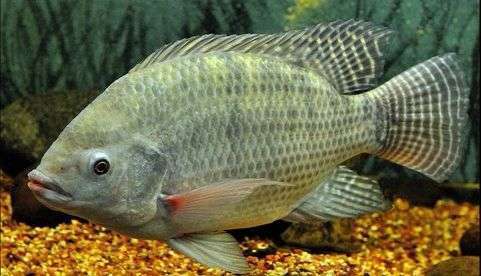
Many parts of Kenya practice fish farming. It is a form of aquaculture in which one raises fish in an enclosed area for purposes of earning an income. Many people have embraced fish farming in modern society and as a result, the value of fish consumption and the health benefits of fish have also been realized.
What Is Fish Farming?
Fish farming or in other words pisciculture is one type of aquaculture or water-based agriculture. When one is referred to as a fish farmer, he may be raising fish in confined spaces to turn fish into food and for income.
Fish farming In Kenya.
Kenya is endowed as one of the Countries with many aquatic resources with successful aquacultural potentials. In addition, highly varied climatic and geographic conditions are available in Kenya covering a part of the Indian Ocean.
Nowadays, fish farming in Kenya has become a business idea, and it’s a great source of income. As a result, numerous commercial fish farms are throughout the Country.
Most people in Kenya deal with fish farming since it is suitable for many. People go training in fish farming institutes to gain the information needed concerning aquaculture.
Aquaculture Training In Kenya.
There are many institutions that provide essential tools for East African farmers like; Practical and business-oriented training programs that cover all essential aspects of aquaculture production.
However, Farm Africa has launched an online training platform focused on fish farming and fingerling producers. Moreover, the website helps fish farmers, traders, and other stakeholders to achieve the maximum skills they require.
- John Legend age, family, wife, children, fame, net worth.
- Ian Gomez Bio, Wiki, The Great American Baking Show, Age, Education, Height, Family, Wife, Children, and Career
- Anne Waiguru-Bio, age, origin, husband, family
- William Kabogo Bio, Age, Education, net worth.
- Larry Kudlow Bio-Age, Family, Wife, Children, Career.
- Kaitlyn Pratt wiki, age, children, husband, net worth, career
- Mark Hall Bio-Age, Edu, Children, Wife, Net Worth, Career
There Are Different Schools To Go To Like:
- Kamiti Fish and intergrated farm.
- Aquaculture Academy – Kamuthanga fish farm in Machakos.
- University of Nairobi.
- Jewlet fish farm – Aquaculture Academy in Kamwala.
- Kenya marine and fisheries research institute.
Different Types Of Fish Farming Methods In Kenya.
- Irrigation Method. Unlike other methods, the basic requirement of this is having a pond or a ditch that holds water. This method is good since fish are artificially fed and the waste produce is used as fertilizer.
- Composite Fish Culture. This type of fish farming allows both imported and local fish species to coexist in the same pond. Thus this saves a lot of space.
- Cage System. This method uses cages which are in lakes, oceans and ponds. This method is most suitable for large scale fish farming because of the space. It occupies lesser space compares to other methods.
- Intergrated Recycling System. This is the largest scale method of fish farming. Furthermore, large plastic tanks are in a green house. Hydroponic beds are placed near the plastic tanks where the fish will later be cycled into.
Types Of Fish Reared In Kenya.
- Tilapia fish. This is a popular fish for fish farming since it is versatile and it is tolerant to many types of environments. In addition, you can farm it in salty waters, ponds or even cage systems. As an omnivorous animal, it can eat both vegetables and animals. Generally, many farmers choose to only farm male tilapias since they grow bigger in a small period of time and they are more profitable.
- Salmon fish. Salmon is the common name for different types of species in the salmonidae family. Which are Pacific salmon and Atlantic salmon. One can find both the salmons in many areas but the ones farmed are Atlantic salmon. Firstly you farm them in fresh water for the first year and later changing them into sea water cages. After attaining a desirable size, take the fish to processing plant to sell them.
- Catfish fish. You can find the fish in rivers, lakes and artificals fish farms. You can grow the catfish in fish ponds and tanks. To make it profitable, setup needs to be in line like; stocking, fish pond management and harvesting. Catfish have a short maturity stage of 6 months when under good management. The weighing weight should be atleast 6kgs prior to selling them.
- Tuna fish.
Questions To Ask Yourself Before Becoming A Fish Farmer.
- Which types of fish you will be capable of producing.
- The price to offer while selling the fish.
- What quality the market requires.
- What production resource you should have.
- If it is possible to get a bulk buyer.
- Are the infrastructure around you meeting the market requirements.
- The quantity you can be able to manage.
- Best Public High Schools in Kiambu County.
- Public Universities in Kenya
- List of Best private secondary schools in Nairobi County.
- The best private primary schools in Nyeri county.
- Kenya Institute of special education, courses.
- How is The Lenana Boy school and location?
- What is the history of Kenyatta University?